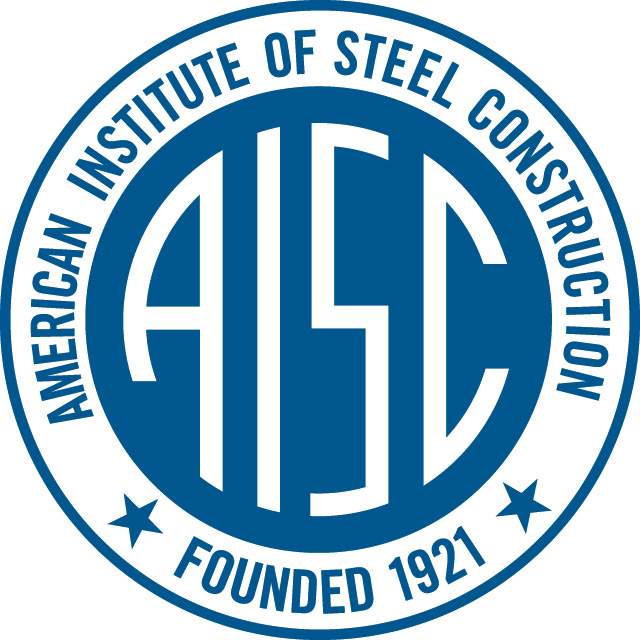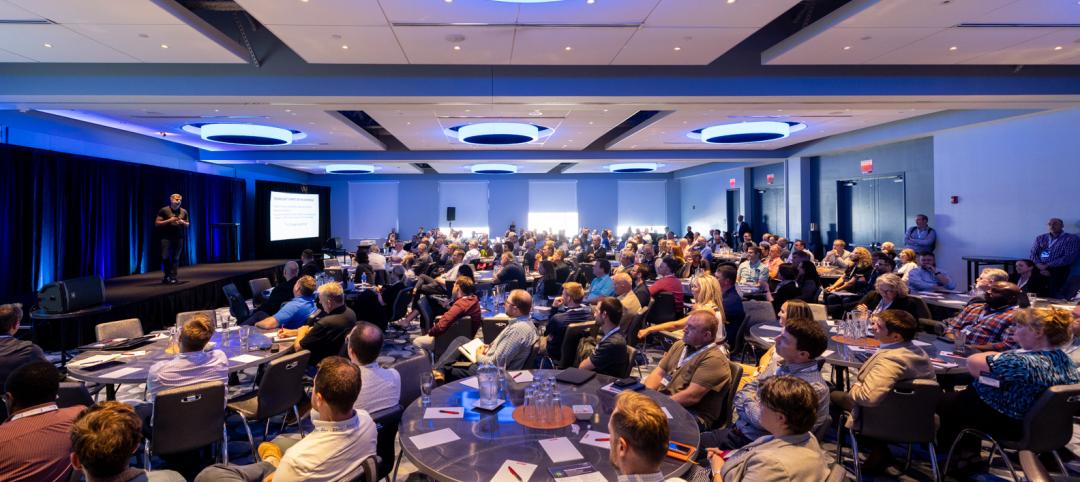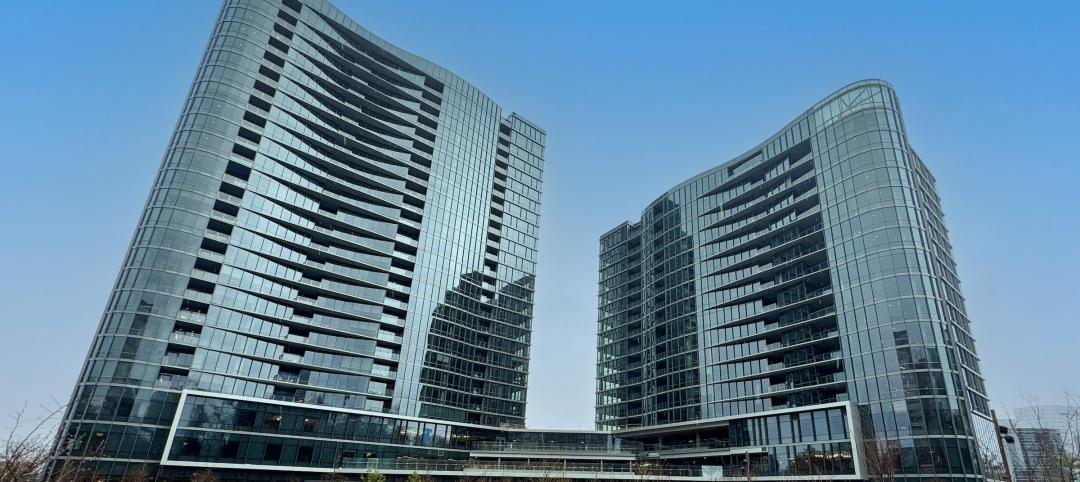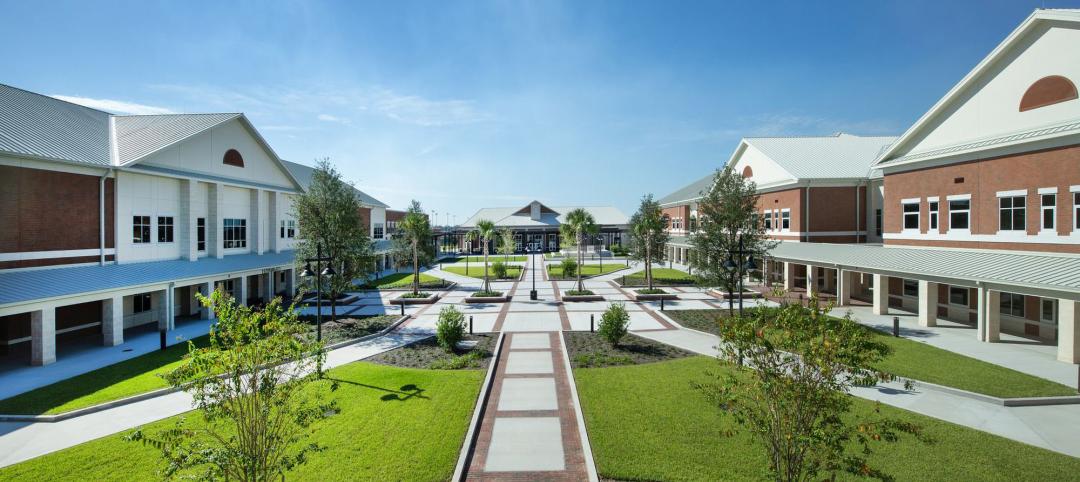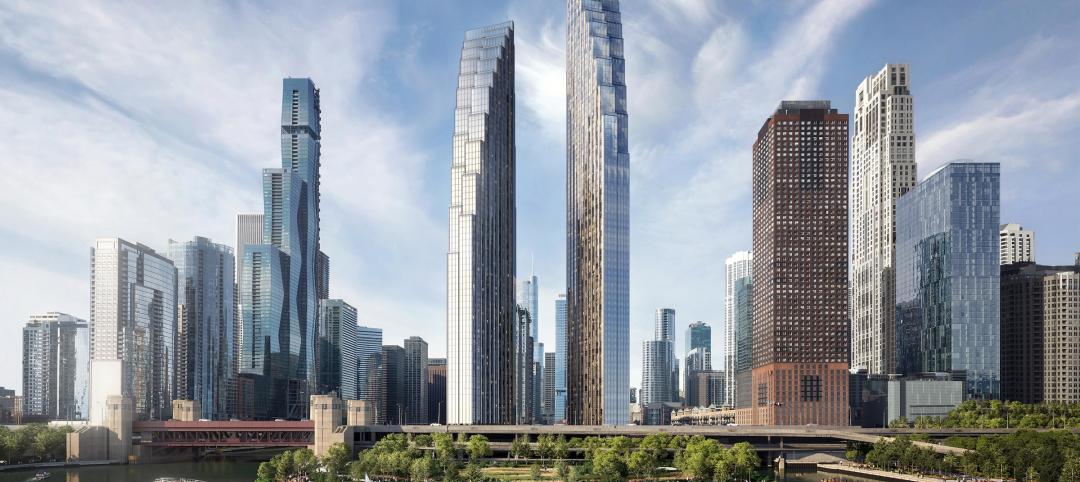For the second consecutive year, NASCC: The Steel Conference provides a glimpse into the future of technology in steel construction with the Technology in Steel Construction Conference (TSCC). This special track features nine informative sessions that focus on advanced technology use throughout the steel construction industry, from various topics on building information modeling (BIM) to interoperability.
TSCC sessions are part of the more than 100 top-notch educational sessions being offered at The Steel Conference in St. Louis, April 17-19 at America's Center Convention Complex. Admittance to all TSCC sessions is included with conference registration. To register or view an advance program, visit www.aisc.org/nascc.
Here's a look at this year's TSCC sessions for steel design and construction professionals:
T1: Leveraging Technology to Improve Project Communication (Wednesday, 3:15 p.m. — 4:15 p.m.) — How do you convey information clearly and succinctly and ensure it is understood by others? How do you know you are interpreting the information you receive correctly? This session, aimed at all roles within the structural steel industry, will discuss how to use the technology you already have, or have easily accessible, to improve communication within the project team and your own organization. Various technologies will be examined, from tools for building and reviewing BIM models and drawings, to web-based software designed to accommodate virtual meetings, to free tools to help you share files and stay mobile.
T2: IFC - Interoperability for Construction? A Practical Take for the Steel Industry (Wednesday, 4:30 p.m. — 6 p.m.) — IFC does not stand for Interoperability for Construction; but it could! It's actually an acronym for buildingSMART's Industry Foundation Classes, an industry-wide open standard that is gaining traction in the construction industry, as it offers a promise unmatched by previous standards: that a single standard can be used across various trades and professions in the industry. This session will explain why AISC adopted IFC at the core of its interoperability strategy and examine the nuances of IFC files, dispelling some myths and perceptions along the way. In addition, the session will take a look at the progress being made toward actual IFC exchanges in the structural steel industry.
T3: Risk and Model Hand-Offs (Thursday, 8 a.m. — 9:30 a.m.) — In this session, you'll learn how to address risk and model hand-offs and the challenges of working with design and construction models. The discussion will also consider the new AIA BIM Protocol Exhibit 202 that defines the Level of Detail (LOD) in models on a scale of 100 to 500. These LOD concepts will then be demonstrated with case studies on projects in three different phases: design, construction and facilities management (FM).
T4: Next Generation Approval: Using BIM for the Shop Drawing Review and Approval Process (Thursday, 10 a.m. — 11:30 a.m.) — BIM models hold tremendous potential, yet they are often underused beyond the visualization and coordination stages. This session will introduce you to three pioneering companies that are taking models to the next level by using them in the review process in concert with, or even in lieu of, traditional shop drawings. Speakers will discuss various methodologies and benefits they've experienced using model review.
T5: Bridging the Gap from Design to Fabrication (Thursday, 1:15 p.m. — 2:15 p.m.) — Do you still use traditional PDF drawings? You may be running the risk of inefficiencies and opportunities for mistakes. In the new and evolving world of BIM, more designers are creating 3D models that contain an immense amount of information that can be easily accessed by steel detailers, who have the opportunity to incorporate lean processes in their workflow -- benefiting the bottom line for the entire project team. In this session, you'll hear about the steel detailing challenges, successes and lessons learned from a major healthcare project related to the structural design model and project team coordination, and how to apply these to your own projects.
T6: The True Benefit of BIM for the Structural Engineer and the Pivotal Role They Play in the BIM Process (Thursday, 3 p.m. — 4 p.m.) — Do you typically use software packages for your own domain and find that it can sometimes be a bottleneck in the BIM process? Structural engineers and designers will often use their own BIM models for design, but, for most projects, the construction documents will be produced as drawings for the steel detailer/fabricator, who then interprets the drawings for building their own BIM models for fabrication purposes. This session will examine and discuss various topics related to improving workflow both within the structural engineering office and as it pertains to sharing models with steel detailers.
T7: What Does it Mean to Be a BIM Coordinator? (Thursday, 4:15 p.m. — 5:15 p.m.) — This session will delve into the role and requirements of a 3D/4D BIM coordinator and provide objectives from the perspectives of a steel detailer and general contractor. The purposes and goals of a BIM Contract will be reviewed, as well as the expectations of each project stakeholder. The session will also examine the different BIM platforms each party uses and the benefits of identifying discrepancies earlier in the design and detailing process.
T8: Steel Procurement in the 21st Century: Current Best Practices and Future Possibilities (Friday, 8 a.m. — 9:30 a.m.) — In today's brave new technological world, paper, faxes and basic spreadsheets still dominate the world of steel procurement. This session will offer practical ways to take advantage of the technology you already own, or have easily accessible, to improve the procurement process, which will be investigated in four primary areas: Inventory availability; Request for Quotation (RFQ); order placement; and order status/delivery. It will also discuss promising future initiatives and opportunities in this area.
T9: Laser Scanning and Steel Construction (Friday, 10 a.m. — 11:30 a.m.) — In this session you'll gain a solid foundation in using laser scanning for your projects, including how to budget and specify laser scanning work. The presentation will also provide practical examples of how laser scanning is adding value, accelerating schedules, and improving quality and safety for steel projects.
More information on this year's TSCC sessions at The Steel Conference can be found in the Advance Program (pages 29-31). For more information about the conference, visit www.aisc.org/nascc.
About the American Institute of Steel Construction
The American Institute of Steel Construction, headquartered in Chicago, is a not-for-profit technical institute and trade association established in 1921 to serve the structural steel design community and construction industry. AISC's mission is to make structural steel the material of choice by being the leader in structural steel-related technical and market-building activities, including: specification and code development, research, education, technical assistance, quality certification, standardization, and market development. AISC has a long tradition of service to the steel construction industry of providing timely and reliable information.
Related Stories
AEC Tech Innovation | Jul 4, 2024
Caution competes with inevitability at conference exploring artificial intelligence for design and construction
Hosted by PSMJ, AEC Innovate in Boston found an AEC industry anxiously at the threshold of change.
Building Team | Jul 3, 2024
So you want to get published: What’s next?
In the AEC industry, securing media attention is no longer a niche endeavor but an essential component of a holistic marketing strategy.
MFPRO+ New Projects | Jul 2, 2024
Miami residential condo tower provides a deeded office unit for every buyer
A new Miami residential condo office tower sweetens the deal for buyers by providing an individual, deeded and furnished office with each condo unit purchased. One Twenty Brickell Residences, a 34-story, 240-unit tower, also offers more than 60,000 sf of exclusive residential amenities.
Student Housing | Jul 1, 2024
Two-tower luxury senior living community features wellness and biophilic elements
A new, two-building, 27-story senior living community in Tysons, Va., emphasizes wellness and biophilic design elements. The Mather, a luxury community for adults aged 62 and older, is situated on a small site surrounded by high-rises.
Smart Buildings | Jul 1, 2024
GSA to invest $80 million on smart building technologies at federal properties
The U.S. General Services Administration (GSA) will invest $80 million from the Inflation Reduction Act (IRA) into smart building technologies within 560 federal buildings. GSA intends to enhance operations through granular controls, expand available reporting with more advanced metering sources, and optimize the operator experience.
Sustainability | Jul 1, 2024
Amazon, JPMorgan Chase among companies collaborating with ILFI to advance carbon verification
Four companies (Amazon, JPMorgan Chase, JLL, and Prologis) are working with the International Living Future Institute to support development of new versions of Zero Carbon Certification.
K-12 Schools | Jul 1, 2024
New guidelines for securing schools and community spaces released by the Door Security and Safety Foundation
The Door Security and Safety Foundation (DSSF), in collaboration with Door and Hardware Institute (DHI), recently released of “Are Your Door Openings Secure?.” The document provides guidelines to equip school administrators, building management personnel, and community leaders with a clear roadmap to create a secure and safe environment.
University Buildings | Jun 28, 2024
The American University in Cairo launches a 270,000-sf expansion of its campus in New Cairo, Egypt
In New Cairo, Egypt, The American University in Cairo (AUC) has broken ground on a roughly 270,000-sf expansion of its campus. The project encompasses two new buildings intended to enhance the physical campus and support AUC’s mission to provide top-tier education and research.
Senior Living Design | Jun 28, 2024
The country’s largest retirement community expands with educational facilities
The project will include a high school, a K-8 school, and an Early Learning Center aimed at serving the children of residents who work in qualified businesses within The Villages.
MFPRO+ New Projects | Jun 27, 2024
Chicago’s long-vacant Spire site will be home to a two-tower residential development
In downtown Chicago, the site of the planned Chicago Spire, at the confluence of Lake Michigan and the Chicago River, has sat vacant since construction ceased in the wake of the Great Recession. In the next few years, the site will be home to a new two-tower residential development, 400 Lake Shore.


